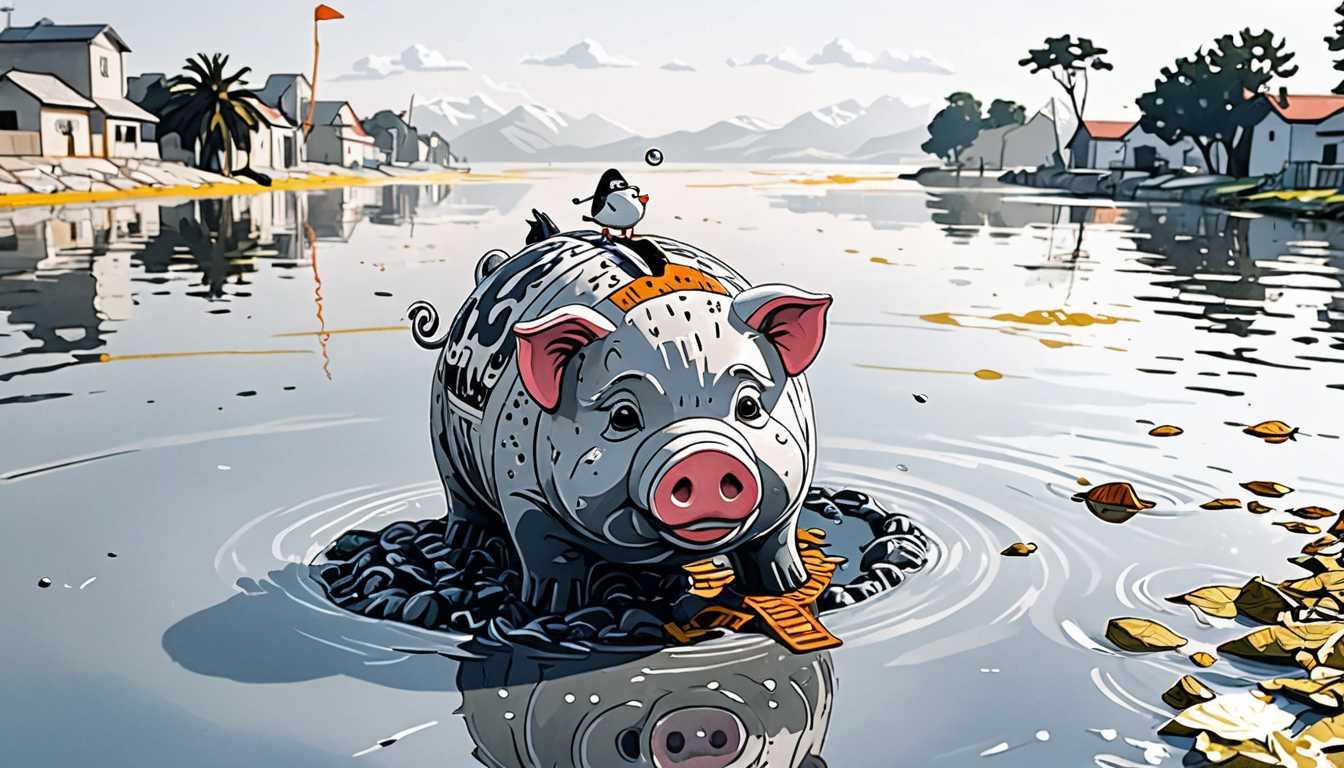Economy Meets Ecology: A Financial Crisis
April 2023
London School of Economics (LSE)
Introduction
Dive into the heart of our planet's financial pulse with Finance stands at the nature frontier from the London School of Economics. Discover how our global economy is intricately woven into nature's fabric, with over half of the world's GDP leaning heavily on nature's dwindling resources. From the vital role of animal pollination in our food crops to the economic tsunami threatened by the degradation of our oceans, this article is a wake-up call. It's not just an environmental issue; it's a financial crisis in the making, with nature degradation posing a real risk to financial stability worldwide. Get ready to explore how preserving nature isn't just about saving the planet—it's about saving our economy too.
READ FULL ARTICLEWhy It Matters
Discover how this topic shapes your world and future
Exploring the Green Frontier
Imagine a world where the air is cleaner, water is purer, and food is abundant. Sounds perfect, right? Yet, our planet is at a tipping point, with nature under threat like never before. The fascinating field of finance at the nature frontier explores how money and investments can help save our planet. It's about understanding that our economy is deeply intertwined with nature's well-being. From the food we eat, relying on bees for pollination, to the air we breathe, filtered by our forests, nature is a silent partner in our global economy. This topic is not just for scientists or economists; it's crucial for everyone, including you. By learning how financial decisions can impact the environment, you can become an advocate for sustainable practices that ensure a healthier planet for future generations. Plus, who wouldn't want to explore innovative solutions that could unlock jobs and improve our quality of life, all while preserving the beauty and diversity of our natural world?
Speak like a Scholar
Biodiversity
The variety of life in the world or in a particular habitat or ecosystem. It's like having a vast library of species that keep our planet thriving.
Ecosystem services
Benefits provided by ecosystems that contribute to making human life both possible and worth living. Think of bees pollinating crops or forests purifying air.
Natural capital
The world's stocks of natural assets including soil, air, water, and all living things. It's as if nature has its own bank account that we all depend on.
Concessional financing
Loans, grants, or investments provided on terms substantially more generous than market loans. It's like getting a scholarship for a project because it's good for the world.
Carbon sinks
Natural environments that absorb more carbon dioxide from the atmosphere than they release. Forests and oceans are like Earth's lungs, inhaling CO2 and keeping the air clean.
Nature-related risks
Risks to businesses and economies that arise from the degradation of nature. It's like when a factory pollutes a river, harming fish populations and the local fishing industry.
Independent Research Ideas
The role of bees in global food security
Investigate how declining bee populations due to pesticide use and habitat loss could affect global crop production and food prices. It's a chance to explore the critical role these tiny pollinators play in our food system.
Evaluating the impact of blue bonds
Dive into how blue bonds, designed to fund marine and ocean projects, contribute to preserving marine biodiversity and supporting sustainable fisheries. It's like looking into how investing in our oceans can yield financial and environmental returns.
The economics of reforestation
Analyze the costs and benefits of reforestation projects in different regions, considering factors like carbon sequestration, biodiversity, and local economies. This project could shed light on how trees are more than just scenic; they're economic powerhouses.
Innovative financing for climate resilience
Explore how innovative financial instruments can fund projects that make communities more resilient to climate change, such as flood defenses or drought-resistant crops. It's an opportunity to think creatively about funding the future.
The intersection of finance and zoonotic disease prevention
Investigate how financial investments in ecosystem preservation could reduce the risk of zoonotic diseases, which are transmitted from animals to humans. This topic connects the dots between finance, health, and environmental stewardship.
Related Articles

Sustainability's Double-Edged Sword
May 2023
London School of Economics (LSE)

Singapore's Climate Finance Crossroads
February 2023
Imperial College London

Rethinking Waste: A Circular Economy's Promise
May 2023
London School of Economics (LSE)

Funding Future Resilience: Climate Adaptation Now
November 2024
LSE Business Review

Carbon Credits: Climate Game Changer
January 2021
McKinsey & Company